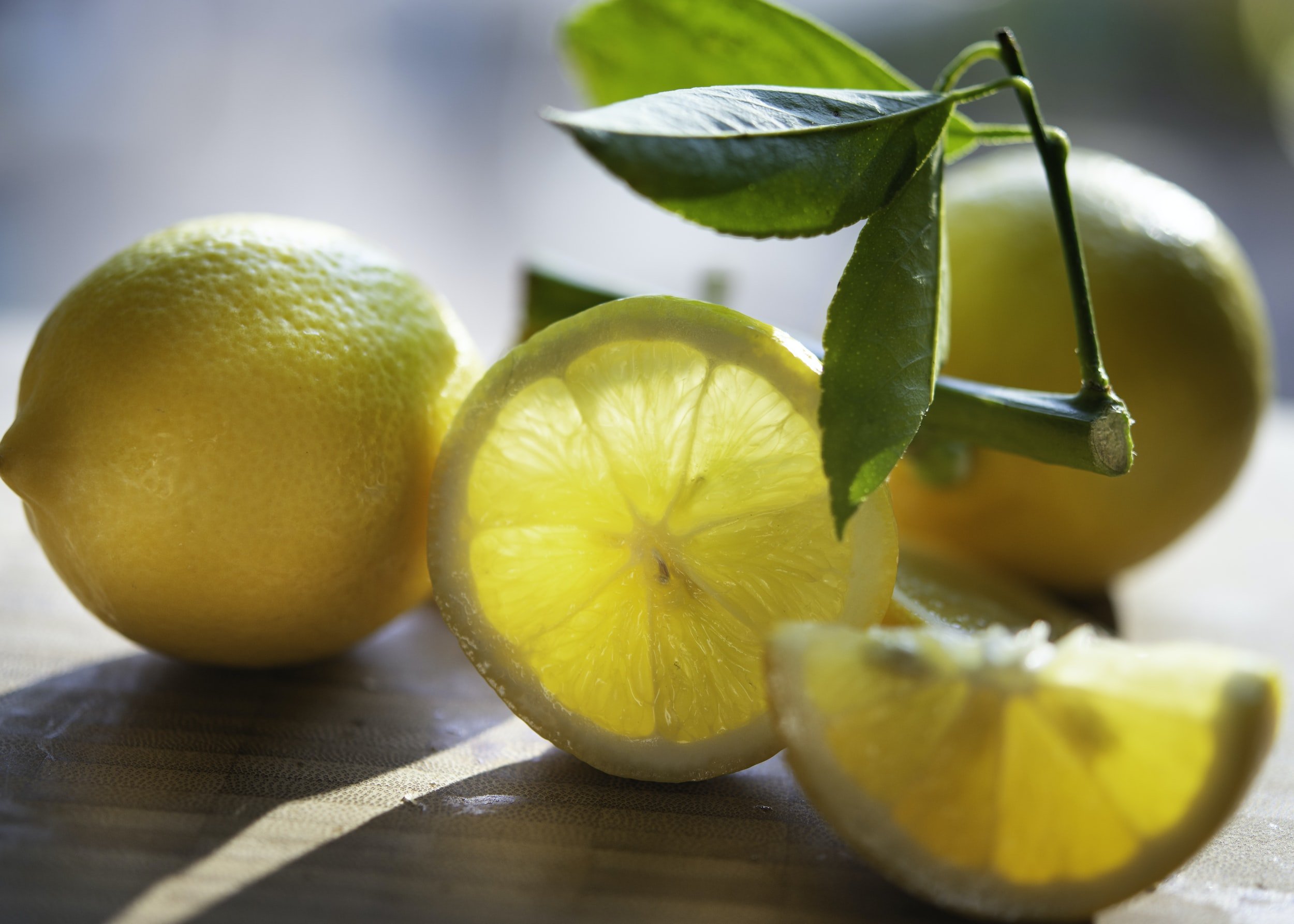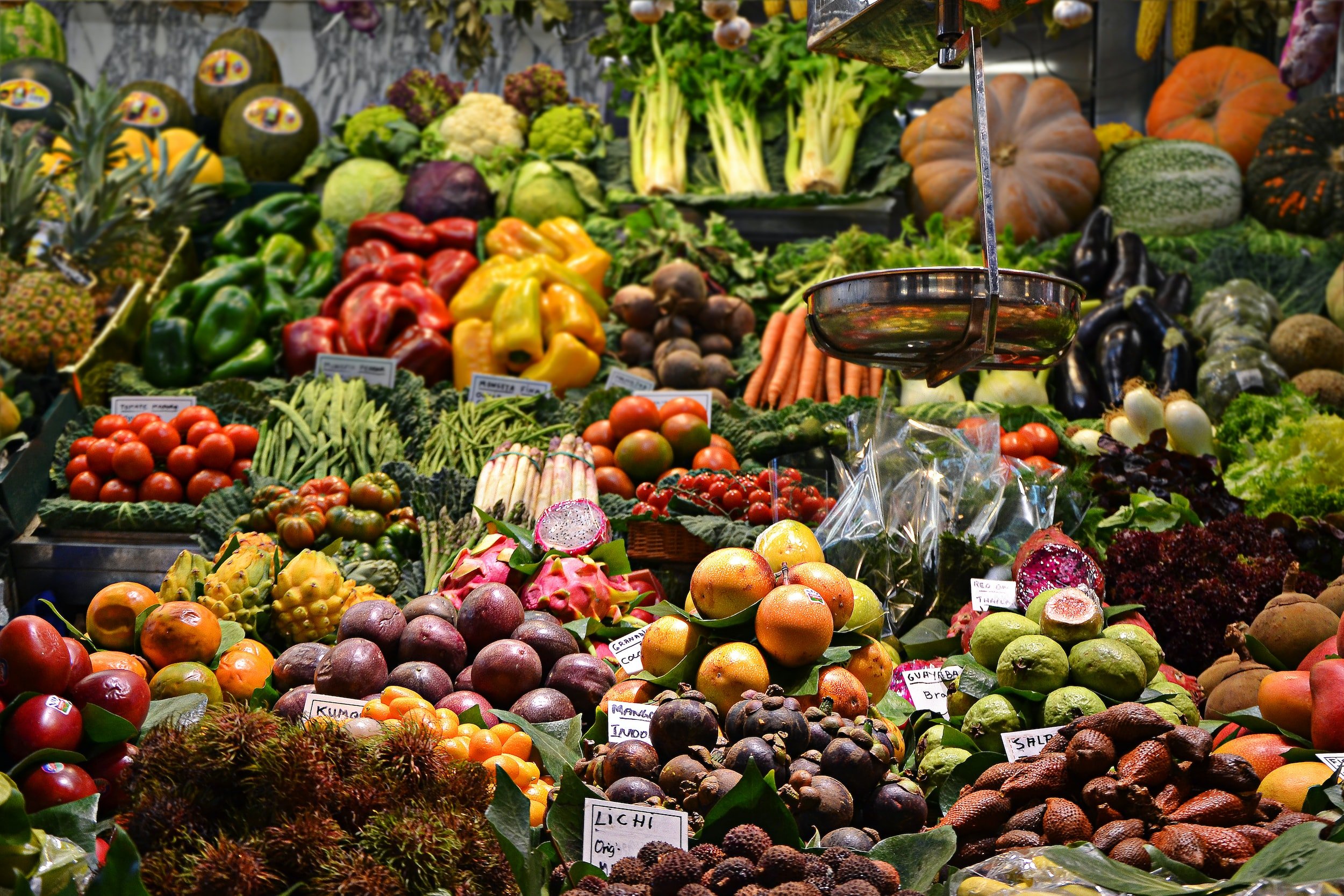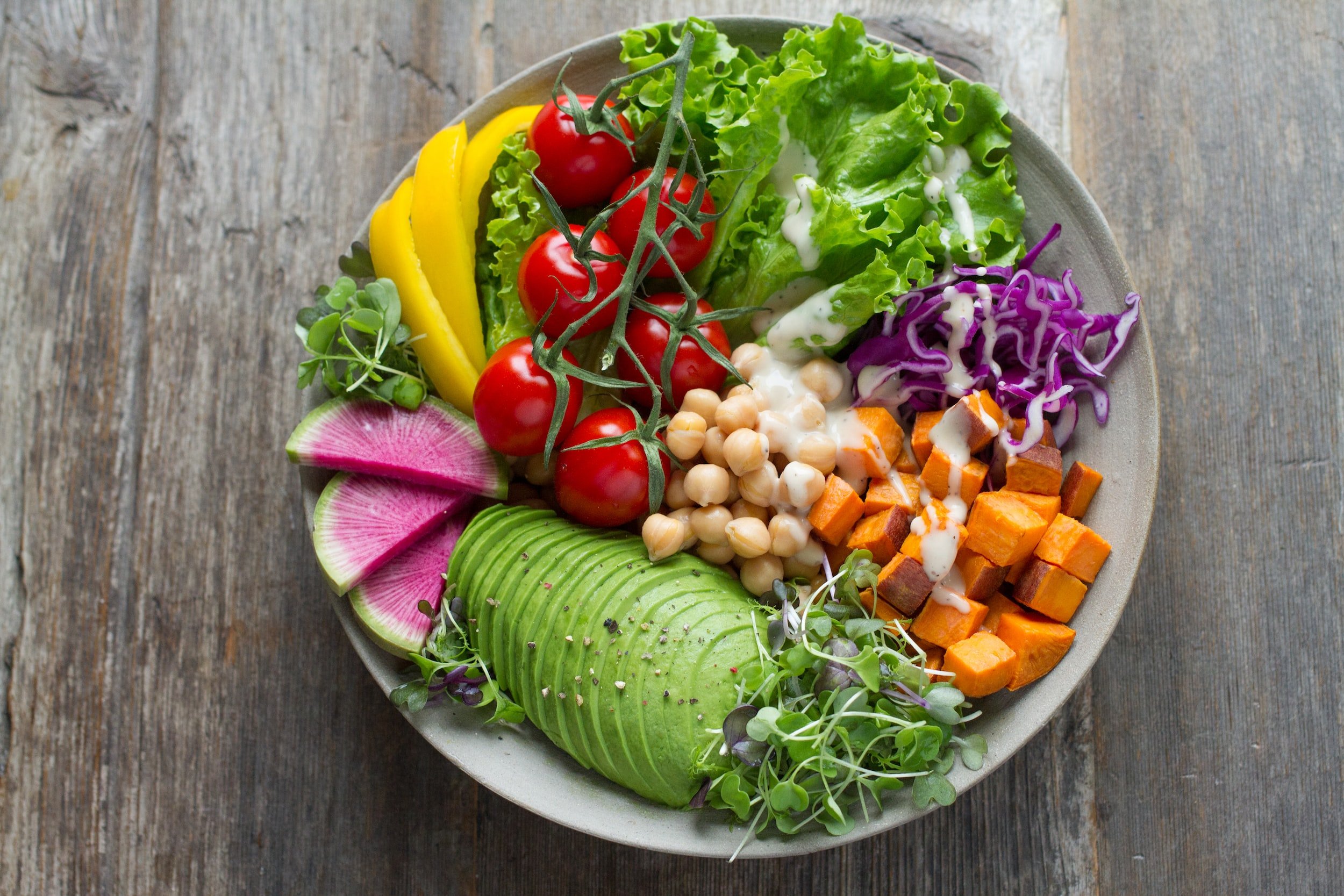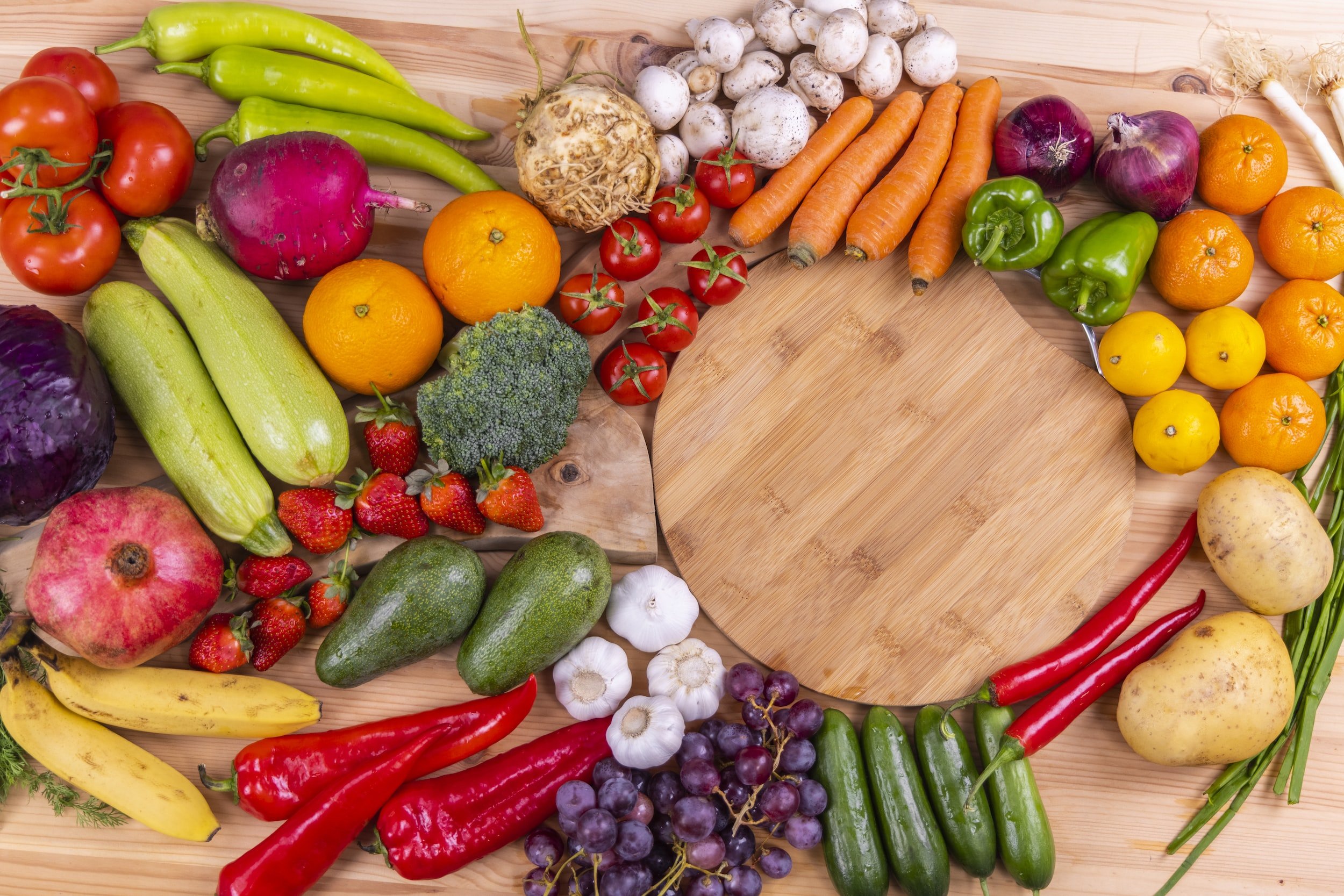Do I Really Need To Eat Organic?
Last night, my husband I sat down for dinner to a delicious venison salad. We love eating salad in the summertime - it’s a great light dinner and we usually have plenty of fresh produce on hand, too.
We have been enjoying a bountiful crop of spinach this season - we’ve had unseasonably cool, rainy weather that has really allowed this vegetable to thrive. It tasted great in the salad, a sharp contradiction to the fresh spinach we had been forced to purchase at the grocery store during the winter.
I hate having to buy produce during the winter, and it’s a habit that I’m trying to break by eating more seasonally and avoiding off-season veggies (plus, we can and freeze as much of the harvest each year as we can, which helps reduce this need).
We are putting in a hoophouse this summer so we can have fresh greens all winter long. We are so grateful for this, especially because the spinach we ate for dinner last night tasted so much better than the spinach from the grocery store...the spinach that left a metallic aftertaste in our mouths afterward (yuck).
We grow organic produce on our farm, but just for ourselves and not for retail at this time. Many people assume that we would be all about organic farming. However, I don’t always buy organic at the grocery store, nor do I think that you really need to eat organic all the time.
Shocked yet?
Here’s why.
**J&R Pierce Family Farm is a participant in the Amazon Services LLC Associates Program, an affiliate advertising program designed to allow sites to earn advertising fees by linking to products on Amazon. I often link to Amazon when recommending certain products, and if you choose to purchase, I may earn a small percentage of the sale. It costs you nothing extra, and all recommended products are ones that I personally vouch for. **
What Does it Mean to Eat Organically?
Before I dive into the nitty gritty of what organic truly means, here’s a quick nuts and bolts overview:
Eating organically means consuming food free of synthetic additives and produced using sustainable farming practices.
Organically grown crops are not treated with chemical fertilizers, pesticides, or growth hormones.
Organic products also do not contain genetically modified ingredients.
Following an organic diet can provide health benefits due to fewer contaminants in the foods eaten.
With all that said, there are some elements of organic farming that aren’t totally understood by much of the general public. We will take a closer look at that in this post, but you can get a general idea of what I’m talking about by watching this video:
What Does “Organic” Really Mean?
Many people assume that just because a food is marketed as “organic” it’s automatically healthier and better for you.
That’s not the case.
Organic simply refers to the way a food is grown, processed, and handled. While these standards are meant to protect the environment, that’s not always the case.
However, in general, organic foods are those that are:
Grown without the use of most conventional pesticides (keep reading for more information on this)
Were not treated with synthetic fertilizers
Do not contain radiation
Have not been genetically modified
Were not produced with hormones or antibiotics
It’s important, though, that you get really good at reading labels. Just because a food is labeled organic, doesn’t mean it’s totally organic. There are three phrases you might encounter at the grocery store, all of which are overseen by the government: 100 percent organic, organic, and made with organic ingredients.
If a product is listed simply as “organic,” all that means is that 95 percent of the ingredients used in the creation of the product are certified organic. If it is only “made with organic ingredients,” only 70 percent are actually organic.
Remember that labels like all-natural and farm-raised aren’t regulated at all - therefore, they shouldn’t hold any weight in your purchasing considerations.
Why Pesticides Are a Problem
The lack of pesticide use in organic farming is a great thing, and is the major reason as to why most people avoid conventional produce. When you eat, you are exposed to a cocktail of dangerous chemicals that have been linked to all kinds of health conditions, from Parkinson’s disease to cancer and even birth defects.
However, what's important to realize is that even organic farmers are allowed to use pesticides - they are just restricted in the kinds and quantities they can use.
Wait - There are Pesticides Used in Organic Farming?
Here’s the deal. Pesticides can still be used in organic farming. The difference between organic and traditional farming is that organic farmers aren't allowed to use MOST synthetic fertilizers (ie, those that aren’t naturally occurring in nature). However, they can still use natural ingredients, which in many cases can be just as harmful to your health.
There are over 20 different chemicals that can be used in the growing and processing of organic crops. Interestingly, the USDA does not keep track of the volume of chemicals used - only the types.
Now, the organic standards in the United States prohibit the use of most synthetic pesticides. Most. Not all. There are special circumstances under which an organic farm may use synthetic pesticides. These synthetics must be proven to be “not harmful to human health or the environment” and “consistent with organic principles.”
The last bit of that statement is ambiguous. You can interpret that however you’d like, and I’m sure it has been twisted up in just about every possible interpretation there is.
However, the first part? Not harmful to human health? According to whom? We once thought cigarettes were good for us - who’s to say that a so-called “safe” synthetic is only “safe” because it lacks research proving otherwise?
The bottom line here is that organic does not always mean better in terms of pesticide use - it just means the government has okay-ed what they are doing. Levels of pesticides are frequently found on organic products, and while they are lower, contamination is absolutely possible.
Remember, just because one farm on a road is organic doesn’t mean that his neighbor is - the wind can easily blow over residues and the rainwater can contaminate crops between properties, too.
The Antibiotic Free Problem
“Antibiotic free.” “Cage free.” “Free range.” First of all, many factory chicken farms are able to market their eggs as cage free or free range simply because they keep their birds in a large barn and throw the doors open every now and then so the chickens can walk outside if they so choose.
However, the yard is so scratched up and void of any plant life that no chicken would want to spend time in it and spends its entire life indoors, anyway. Or the chickens are raised in such close confinement that, even though they aren’t kept in cages, they can’t really move around anyway.
So what good is that cage-free or free-range designation really doing for you?
The lingo is confusing when you head to the grocery store to buy meat (which is why we don’t buy any meat at all anymore and instead raise it on our own farm). Many brands tout that their meats are antibiotic free, but the question I always ask myself is, “Why would an animal need antibiotics to begin with?”
Remember that antibiotics aren’t something given as a preventative measure - most ethical farmers will only administer them when an animal is sick. So if animals are being raised correctly, meaning they are given access to plenty of pasture and clean water, they shouldn’t need any antibiotics to begin with.
We don’t treat with antibiotics here on our farm. That being said, if one of my animals got sick, you can bet I wouldn’t hesitate to treat them. While I understand the purpose of raising meat antibiotic free- and marketing it as such - I don’t like that the industry has capitalized on this by charging a significant extra fee for consumers wishing to purchase meat that is antibiotic free.
It’s better for you, sure. Animals that have been treated with antibiotics are often more likely to develop certain antibiotic-resistant bacteria. However, it also increases the likelihood that your average Joe farmer wanting to do things “the right way” will avoid treating his pig or chicken with antibiotics when it’s truly sick because he wants to market the meat as organic.
When animals are raised in the proper conditions - access to pasture, clean water, preventive care - there’s a slim chance that they will need any kind of medication at all. Just look at your large factory farms and the expensive precautions that need to be taken to avoid introducing new disease.
However, the reality is that there is a lot of misinformation out there about antibiotics in food that I’m not sure the average consumer is aware of. Don’t pay extra for “antibiotic-free” if you’re purchasing a food that should never have been treated with antibiotics to begin with.
Now, where you do need to pay attention in purchasing meat is in how the animals were processed hormonally as well as what they were fed. Cattle, for example, that are raised non-organically are sometimes given sex hormones so that they will grow out more quickly. This has been linked to some reproductive development issues, but there are more studies needed.
You should also think seriously about what the animal ate. Grass-fed beef is higher in nutritional value and is raised more ethically, for example. Remember that organic meat standards require that the animal was fed only organic feed that not only includes all-organic ingredients but also was not grown with fertilizer or pesticides.
When You Should Eat Organic
You Are Eating These Foods
The following foods are those that you should consider buying in the organic option. Fruits and vegetables that you eat in their entirety, like leafy greens and berries, likely will retain some level of pesticide or fertilizer contamination even after they have been washed. Consider buying the following organic foods:
Kale
Spinach
Apples
Peaches
Nectarines
Berries
Bell peppers
Grapes
Celery
Potatoes
Organic foods contain fewer pesticides and is often fresher because it doesn’t contain preservatives that make it last longer. Because organic produce, meat, and milk are produced using natural alternatives to chemicals such as rotational grazing, aged compost fertilization, and other methods, they also tend to be higher in their nutritional value.
You should also buy organic meat, eggs, and dairy whenever possible - or, in my opinion, even better is pasture- raised. That’s because conventionally raised farm animals in the United States can legally be fed:
Antibiotics
Animal byproducts
Growth hormones
Pesticides
Sewage Sludge
Steroids
Hormones
Arsenic-based medication
Whenever possible, opt for locally grown meats and dairy products. You’ll know exactly how these were raised. Pasture-raised animals like ours, even when not given the organic certification, are far less likely to contain traces of those chemicals you’re worried about. We don’t use synthetic fertilizers, herbicides, pesticides, or anything else on our pastures. We treat with antibiotics only when an animal is truly sick and needs them to survive. We don’t feed animal byproducts and we don’t use artificial hormones of any kind.
If that’s not an option, go for organic so you don’t have to worry about any contamination - or the animal’s welfare.
You’re Worried About GMOs
The jury’s still out on GMOs. Essentially, GMOs, or genetically modified organisms, are just those that are engineered to make food crops resistant to pesticides or to produce a resistance to insects. Most of the sweet corn grown in the United States is genetically engineered so that it is resistant to Roundup and can produces its own insecticide.
GMOs aren’t innately harmful. The problem with GMOs is that they encourage the large scale use of herbicides like Roundup. If the corn plant can survive an application of Roundup, that means it will thrive while all the plants around it die, reducing competition.
The FDA has ruled that GMOs are safe, but there are some animal studies suggest that they could increase your likelihood of food allergies and gastrointestinal problems.
When Organic Doesn’t Matter
Think organic is the end-all-, be-all? Think again. Here are some reasons to reconsider going completely organic.
If You Don't Trust the USDA
Remember that in order for a company or farm to sell food as organic, all that means is that they have to fill out certain paperwork and be subjected to regular inspections. Remember, too, that this kind of regulation necessitates human oversight. Remember that humans are prone to error.
The bottom line here? I’m not dissing the USDA, or organic farmers. I’m just trying to make the point that organic is a food label and nothing more. If you really want to know exactly what’s going into the creation of your food, your best bet is to buy local so that you can actually see things firsthand.
Until there’s a better, more robust monitoring system in place, I don’t necessarily trust an organic label lany more than I’d trust the next salesy gimmick.
If You’re Concerned About Your Budget
Organic foods typically run about twenty percent higher than traditional prices, according to the USDA. While this difference is noticeable across all sectors, it seems to be highest for things like organic milk and eggs. Organic eggs can cost sixty percent more than non-organic options!
While organic foods are absolutely worth it in many cases, as they may lower your exposure to artificial ingredients and chemicals, in others, it doesn’t matter much whether you're eating organic (read on for our list of the “clean 15" - foods you don’t need to buy organic). You might as well save a few dollars by purchasing these foods as not organic.
If You’re Concerned About the Environment
Here’s the thing - eating organic doesn’t always mean you’re doing the environment any favors. While it usually does- organic produce reduces pollution, conserves water, reduces the likelihood of soil erosion while increasing fertility, and uses less energy - there is one small caveat to this. If you’re purchasing an organic apple that was shipped across the country versus the non-organic one grown in your neighbor’s backyard, the benefit to the environment might be a wash. When food has to travel many thousands of miles to get to you, you aren’t always making the environmentally conscious decision by shopping organic.
Whenever possible, choose local organic instead of far-away options. When given the choice between a local, non-organic option and a distant, organic one, I always choose the local. At least I know for sure how it was produced, and it’s not just a piece of paper telling me that information instead.
If You’re Eating Thick-Skinned Produce
If you’re purchasing foods like pineapples, melons, or avocados, you probably don’t need to buy organic. These foods tend to have the lowest amounts of pesticides, largely because the thick skin makes it difficult for pesticides to reach the insides of the fruit. To be safe, just wash these foods before you eat them.
Other foods you don’t need to buy organic include:
Asparagus
Onion
Avocado
Papaya
Mushrooms
Pineapple
Cabbage
Sweet peas
Sweet Corn
Sweet Potatoes
Eggplant
Grapefruit
Kiwi
Cantaloupe
Mango
If You’re Eating Maple Syrup
Certified organic maple syrup is not anything to be impressed by. Syrup is harvested from maple trees, which grow in forests...which usually aren’t treated with fertilizers or pesticides anyway. Just steer clear of “maple flavoring,” which usually is small amounts of actual maple “flavoring” and tons of preservatives and high-fructose corn syrup.
If You’re Buying Seafood
There’s really no such thing as “organic” seafood. The USDA doesn’t have standards in place for organic seafood. All seafood can still contain contaminants and it’s not guaranteed to be safer for anyone. Instead, shop for fish that are naturally low in mercury or those that are smaller in size, as they tend to contain fewer contaminants. Going for wild-caught instead of farm-raised fish is also a safer bet.
If You’re Worried About Bacteria
While organic foods are naturally going to be lower in chemicals, if you’re worried about the natural "gross stuff," don’t think organic will do you any favors. In a recent study published in the Annals of Internal Medicine, there was no difference in bacterial contamination with E.coli and other bacteria, fungi, and heavy metals between organic and non-organic foods.
If You Think It’s More Nutritious
Many people feel as though organic food is more nutritious, but that’s sadly not the case. In a 2009 research paper published in the American Journal Of Clinical Nutrition, researchers found no difference between the vitamin and mineral content of organic vs. nonorganic foods. While other studies have suggested that certain foods may contain more nutrients when grown organically, this is not the case across the board.
Foods grown organically typically were produced in soils that were more fertile. However, there is no rule saying that organic produce has to have more nutrients.
On the flip side, there are studies pointing to the fact that produce grown hydroponically or food that is grown and shipped long distances tends to be less nutritionally dense as a whole. Hydroponic foods lose nutrients because they don’t receive as many nutrients from the soil, and foods shipped across the country are so old by the time they get to you that a lot of the value has faded.
Alternatives to Eating Organic
Remember that organic isn’t always better. While it’s true that going organic can be better for your health in most cases, it’s not a one-size-fits-all situation. Here are some tips for improving your health without necessarily going 100 percent organic.
Eat a variety of produce and avoid processed foods. Studies have shown that eating multiple types of produce is better for your health, not only because you are exposed to more nutrients, antioxidants, vitamins, and minerals, but also because you are less likely to be exposed to a huge dose of one single pesticide.
Clean your produce. Rinsing helps reduce pesticides, but the only way to get pesticides and other chemicals off your food is to wash it thoroughly. Unfortunately, some pesticides can penetrate through the skin of the vegetable, so even if you peel it, you might not be able to remove all traces. However, cleaning your produce is always a good practice, even if it was grown organically.
Buy local. There are so many crops, like strawberries, that must be grown with chemicals in order to ship well. That’s why it’s so hard to find good-looking strawberries at the grocery store.
Instead of shelling out the extra cash for organic foods that were shipped from halfway across the country, spend your money at local farmer’s markets. There, you can get produce and other foods that were grown naturally without contributing to climate change in the process.
Shop seasonally. This ties in to the last point, but if you’re able to shop seasonally, do so. Local produce has a shelf-life, just in the same way that organic produce does. A strawberry should not last for six weeks, and it won’t.
However, if you eat seasonally by eating foods when they are naturally grown (winter squash in the fall, zucchini in the summer, asparagus in the spring), you’ll reduce the likelihood that you are eating foods that were shipped halfway across the country. In doing so, you’ll also reduce the chances that it was treated heavily with chemicals.
Save money by shopping smart and engaging in good kitchen behaviors. Learn how to can, freeze, and preserve your own food. This will allow you to shop locally and seasonally throughout the year, because you can purchase a bulk load of organic local produce and process it to be used throughout the rest of the year when it is not in season.
You can also join local food cooperatives or community supported agriculture farms, in which you can get shares of organic food for much less than what you would pay at the grocery store.
The vast majority of all food that is consumed around the world is not organic. In the United States, less than five percent of all food is organic, and while that number is double in many countries in Europe, it’s a minority of all food produced. While this is sad in some ways, there’s not a lot of evidence that organic is better, 100 percent of the time.
In fact, we don’t shop organic, and we also are not a certified organic farm. The reason is quite simple, and it’s one I've heard time and time again. Many small farmers around the country simply can’t afford the time or money to jump through all the hoops required to be certified by the USDA as organic. The process is prohibitively expensive, making it more difficult for small farmers to produce this marketing stamp.
While going organic is better for you in many cases, the bottom line is that it’s better to buy from the guy down the road than from the massive organic operation across the country.
By keeping your business local, you increase the likelihood that the farmer who’s already doing all the right things - treating his animals with care, using compost on his fields, and avoiding chemicals whenever possible - will one day be able to afford the monumental fees associated with the organic moniker.
Now remember, I’m not a doctor, and nothing you read in this article should be taken as medical advice - merely my own musings and a little bit of research. However, if you have any questions or comments about organic eating, please be sure to leave them in the comments! I’d love to hear from you.
Want to learn more about farming? Be sure to check out these featured articles!
Subscribe to our email newsletter for regular tips and tricks on homesteading and farming – wherever you are. You can also follow us on Instagram (@jrpiercefamilyfarm) and Pinterest (J&R Pierce Family Farm) for frequent updates. Happy homesteading!









